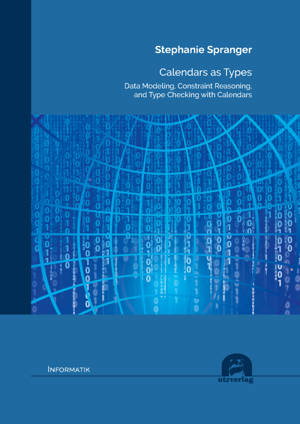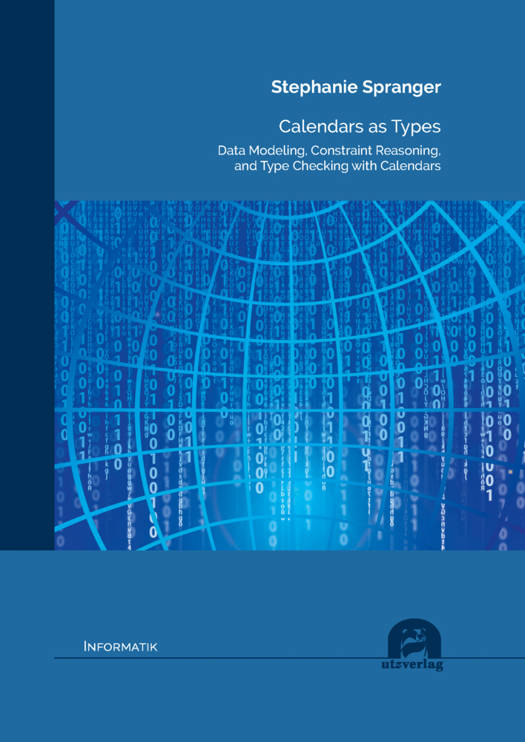
- Retrait gratuit dans votre magasin Club
- 7.000.000 titres dans notre catalogue
- Payer en toute sécurité
- Toujours un magasin près de chez vous
- Retrait gratuit dans votre magasin Club
- 7.000.000 titres dans notre catalogue
- Payer en toute sécurité
- Toujours un magasin près de chez vous
Calendars as Types
Data Modeling, Constraint Reasoning, and Type Checking with Calendars. Dissertationsschrift. DE
Stephanie Spranger
51,45 €
+ 102 points
Description
This thesis investigates real-life calendars, calendar and time expressions, and time and date formats. The thesis aims at the development of computer-based tools for modeling and processing such calendric data. The realization is based on a programming language approach to time and calendars that essentially differs from logic-based and algebraic approaches. The thesis underlying this work is twofold: (1) »Calendar as Type«, i.e. time and calendar expressions are not modeled in a logic or an algebra but instead, by means of data types. The user is provided with a set of language constructs (so-called type constructors). Advantages of this approach are: user-friendly modeling, increase of efficiency and consistency, program and document annotation, and abstraction. (2) »Theory Reasoning«, i.e. problems such as appointment scheduling or travel planning are formulated in the environment of a constraint solver specific to arbitrary calendar domains (i.e. user-defined data types like »day« or »consultation hour«) rather than by axiomatization, commonly used with approaches based on ontology modeling and reasoning. The constraint solver refers to and relies on (user-defined) calendric types, it maintains the semantics of different calendric types like »day« and »consultation hour«, and it allows for efficient constraint solving with arbitrary calendric data.Concerning Computer Science, this work is related to research in the area of modeling language design and design of language constructs for programming languages based on concepts and theories from research on type systems and constraint programming. Theoretical aspects of this work are the use of data types to model time and calendar expressions with type checking approaches and constraint solving over different domains referring to such calendric types. Practical aspects of this work are user-friendly language constructs for modeling calendars and calendric data and constraints which can be efficiently processed. Such specialized language constructs and processing tools for data that refer to a specific domain such as calendars and time are (or will be) important for several Semantic Web applications. Due to use of data types and type checking approaches to temporal and calendric data, the proposed tools can be integrated into any Web language.The thesis shows perspectives for future research on using data types and specific inference algorithms (e.g. constraint solving) for modeling and reasoning on specific theories (e.g. topologies and locational data).
Spécifications
Parties prenantes
- Auteur(s) :
- Editeur:
Contenu
- Nombre de pages :
- 312
- Langue:
- Anglais
- Collection :
- Tome:
- n° 85
Caractéristiques
- EAN:
- 9783831685875
- Format:
- Livre broché
- Dimensions :
- 145 mm x 205 mm
- Poids :
- 390 g







